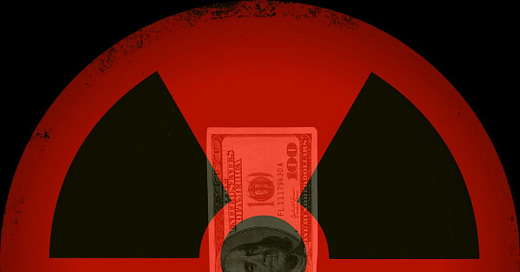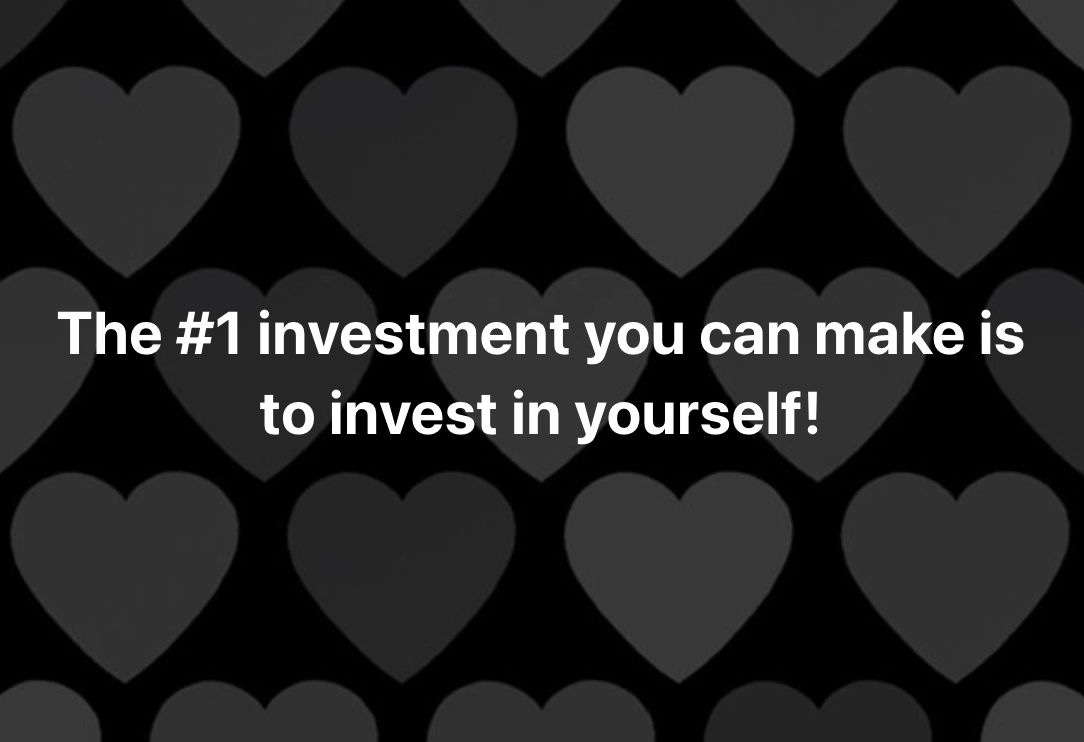Do You Have a Dangerous Money Mindset?
Could any of these five common beliefs be affecting your growth?
Could any of these five common beliefs be affecting your growth?
Our money mindset plays a major role in our ability to realize the successful results we desire in our businesses and careers. Some of the most common negative attitudes or thought habits around money can be quite devastating to our life-long earning potential and financial well-being.
These problems can be particularly acute for those of us in the arts and in related services where our genuine desire to help others in need, or our wish to "make it" by winning over the approval of gatekeepers and others at all costs, can result in a cycle of self-sabotage and martyrdom. I'll admit I've done more than my share by having taught for too little, or having done too many "professional" shows and gigs that paid less than the cost of the gas to get there!
Below are what I've found to be five common dangerous money mindsets among people in the artistic and related professions. They may not present an immediate life-threatening kind of danger, but they can be analogous to a frog in a pot of water that keeps getting hotter.
The longer you tolerate earning less than you deserve, the more dangerously under prepared you might be when it's time to retire. Or the danger could come sooner if find yourself unable to work, you lose your day job, or you end up losing all of your savings or other resources of financial security when other circumstances get beyond your control.
But one way to start staying in control is to train yourself to not think according to these negative mindsets! As Napoleon Hill wrote in Think and Grow Rich, "No more effort is required to aim high in life, to demand abundance and prosperity, than is required to accept misery and poverty.”
DANGEROUS MINDSET #1:
“I don't do it for the money, I do it for the ART!”
(Or "...I do it for the children!")
(Or "...I do it for GOD!!!")
We can go down many rabbit holes with this, and I did in this earlier post, but I'm sure it's safe to at least say that nearly all of us intend to be of service to something greater than ourselves with our artistic, educational, or ministerial work. So are we really evil, corrupt, unclean or undesirable in some way if we earn a respectable living in the process?
Moreover, who really got to decide that the "starving" artists, be it literal starvation or just a starving or impoverished mindset, are better or purer at their craft (or at caring for children, or at serving God) than those who are having lives that are financially, physically, emotionally, and likely even spiritually healthier?
However you feel about the "Money vs. Art" philosophical debate, if your goal is to generate greater income from your craft or supporting lines of work, take a moment to ask yourself, "Is this belief really serving me?" Often the only shift we need to make is to simply let go of what the people we’re around might think. Dare I acknowledge that most of the people who reinforce these negative beliefs around money and art usually aren't having the success we want to have anyway!
The most successful creative entrepreneurs manage to strike a healthy balance between between being charitable and allowing themselves to virtuously grow their wealth so they can ultimately be way more philanthropic for the rest of their lives and beyond.
DANGEROUS MINDSET #2:
“I’ll have to work longer and harder to earn more.”
I once heard the late Jim Rohn say, 'You don't get paid for the hour, you get paid for the value you bring to the hour." And another mentor said, "Employees get paid by the hour, entrepreneurs get paid for the value they create."
As artists, educators, or other creative service-based entrepreneurs, we need to remember we're not really selling our time. We're selling the priceless value of what we're creating or doing, we're selling our own uniqueness, and we're selling the results our audience or clients will experience regardless of the actual time involved. Besides, there is only so much time you can actually work before you run out.
As long as the use value for the person paying is greater than the value of the cash you're receiving, you can charge practically any amount you wish. So what is the true value of what you have to offer in the life of the person you are serving? Or as I asked in this previous post, how are you like a diamond?
Finally, the work doesn't have to be "hard." It's taken me a while to get used to this idea having been raised by parents who mainly earned any extra money working longer and more grueling overtime hours. In Think and Grow Rich, Napoleon Hill wrote, "Riches, when they come in huge quantities, are never the result of hard work. Riches come if they come at all, in response to definite demands, based upon the application of definite principles, and not by chance or luck." Rather than go out and work in a coal mine, the only “hard work” you may have to actually do is to pick up the phone and make a sales call!
DANGEROUS MINDSET #3:
“People won't be able to afford to pay me more.”
It‘s true there will always be someone who can't afford what we offer no matter the price, but it’s also true there will always be someone who can afford to pay more if you have a viable product or service worth the price. If you have a clear understanding of the value your offer has in the life of your client, you can almost always confidently charge more than you might think. I like to point out that often even people who say they're "broke" will figure out a way to pay if you're offering the transformation they most want. So it's best to not prejudge what you think is or isn't in their wallet—they might end up paying you out of someone else's anyway!
Additionally, as I talked about in this post, "I can't afford it" is often just a default response to any amount or to any offer people aren't used to. They may just need some guidance or coaching to help them see the value in the offer so they can make it a priority in their budget, find the opportunity to generate the money, or find the right person to ask for help. The real help they need might not be a discount, but for a leader like you to be the role model they need to confidently charge more themselves too! And as I mentioned above, the more you allow yourself to virtuously earn, the more you can afford to be philanthropic and help those who truly need help.
DANGEROUS MINDSET #4:
“If I make more, others have to make less."
No.
Just No!
WRONG!!!
Money, or whatever else we use in life to represent it, is not a finite resource. It's infinite! Of course, throughout history and even today, certain people have profited immensely off the idea of us never having enough to go around. But in reality, money, or any equivalence thereof, is an abundant resource that can keep renewing and expanding as long as there is more potential value to be created between different people in the world. My mentor regularly says, "Money comes from spirit through other people." As long as there is an abundance of opportunity to make others' lives better, there will be an abundance of money or an equivalence waiting to be earned.
Now, yes, when we close a sale, our bank account balance may for a time be higher while the client's or buyer's account for a time is lower. We have to remember we're giving them a return on investment that will help them earn back the money or add to their quality of life in ways that are worth what they paid. And as I mentioned above, the more you earn, the more the people you serve should earn, i.e. a teacher's floor is often the student's ceiling!
DANGEROUS MINDSET #5:
“I can't handle getting too big!”
I heard my mentor once say, "You were put here to go after what you want. Your were conditioned to go after what you need."
Most of us were conditioned to believe we don't deserve wealth and success because we don't "need" it, or earning too much goes against the value systems of our parents, grandparents, other relatives, friends, or even colleagues. To avoid the risk of not fitting into the social circles we're comfortable in, we may conform and play it safe. We shy away from allowing ourselves to take our potential to the fullest so we can be, do, and have all that we really want. Hence, I find it fascinating that for musicians, even though solo performing is how our success is measured in school, after we graduate, we mostly just go about life trying to fit in someone else's ensemble instead of "go solo" and have the life we want.
As I mentioned above, we may have to get comfortable with the idea of being uncomfortable while growing past the people we’re currently around to get to our next level. This is why hiring a coach or mentor is vital to succeeding sooner—we can see things you can’t yet see and as we use our wisdom and experiences you get over the obstacles faster than if you were on your own. And one of the biggest obstacles is overcoming this fear of being seen as getting too big!
Want to Start Shifting Your Mindset?
Becoming aware of how we got a belief that doesn't serve us is an important part of being able to let it go and adopt a better belief. So if any of these five mindsets are playing a role in keeping you from reaching that next level of success you desire to have and you know you deserve, take a moment to ask yourself where you might have originally gotten the related beliefs from. Were they from your parents? A teacher or mentor? Some other authority figure? Was it a result of trying to fit in with friends or fellow artists?
Next, ask yourself:
“What if they were wrong?”
and/or
“What if it didn't have to be true for ME?”
Finally, what would you like to believe instead? Use your answer to the above questions to help craft a new and more empowering belief that can better serve your greater purpose and get you the results you actually do want! If you feel stuck, remember your greatest power is your power to choose, and as my coach once told me, "You can choose to believe something you don't currently believe!"
Thanks again for reading. If you got any questions or want to talk about this topic more, feel free to send me a message!

















